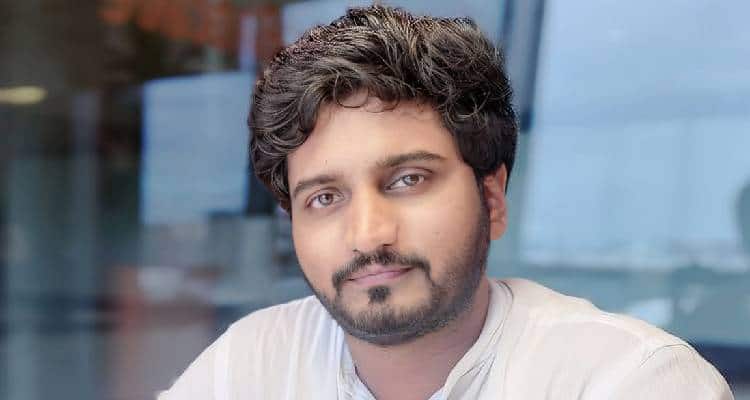In the article, Sunil Maddikatla explains how AI and biosensing data are enabling real-time health insights at home
 Sunil Maddikatla, Founder of Eyva
Sunil Maddikatla, Founder of Eyva
Mornings can be reassuring when an in-home health monitor identifies three consecutive days of high blood pressure readings. The system instantly flags the trend and recommends calling a doctor. Hours later, medication adjustments happen from home and the process is wrapped up remotely. What once took weeks of missed symptoms and hospital visits now takes only minutes of proactive response.
This is the reality of how AI is reshaping healthcare. It is increasingly playing a crucial role in the sector and is estimated to contribute USD 25-30 billion to the global healthcare market by 2025 as per a report by IBEF (1). One of the technologies taking center stage is biosensing. It now continuously tracks critical health metrics in the home. People can monitor key health parameters without medical visits or intrusive processes. Advanced analysis generates individualised health information that aids real-time decision support. For patients, this means less dependency on hospitals for routine monitoring and more autonomy in managing chronic conditions, which can significantly reduce healthcare costs and stress. Preventive wellness is now available to millions who once depended only on periodic checkups.
Advanced biosensing without barriers
Biosensing technology, as per a recent market research, is projected to reach USD 75.84 billion (2) by 2033. Non-invasive systems now enable access to parameters such as blood pressure, hydration status, and HbA1c without blood draws, bulky wearables, or clinical visits. Platforms employ sensors capable of detecting physiological changes through simple, user-friendly interfaces. Aging communities and rural populations particularly benefit, as these tools help overcome geographical and mobility challenges. The simplicity of these devices ensures that even people unfamiliar with technology can incorporate them into their daily routines, making advanced healthcare less intimidating and more approachable.
Intelligence that interprets complex data
Artificial intelligence is the key element that translates raw readings into actionable insights. These systems process intricate biomarker patterns and offer customised recommendations for better daily health choices. What becomes evident in real-world applications is that machine learning algorithms are steadily fine-tuning accuracy with each interaction, delivering assessments that match an individual’s unique physiological profile. The ability to discover subtle patterns provides users greater confidence in managing their health. This kind of adaptive intelligence also gives doctors valuable support, as they can remotely access cleaner, more reliable data to guide timely clinical decisions.
Creating longitudinal health profiles
Ongoing data collection builds active health profiles that grow with every measurement, offering portraits of wellness over time rather than static snapshots. Issues can be detected weeks or months before standard screening tools reveal them. The system creates baselines and monitors deviations, offering insight into health trajectories and aging patterns. By highlighting trends, it shows how lifestyle directly contributes to long-term outcomes.
Integration across health ecosystems
AI-based health monitoring platforms are increasingly linking with digital health tools, insurance initiatives, and workplace wellness programs. Major players like Google and Apple are exploring continuous health data for care management and risk stratification. Corporate wellness initiatives are strengthened by real-time employee health data that inform timely interventions. These integrations form support networks that extend the impact of individual monitoring across healthcare systems.
The union of biosensing and intelligent analytics is making preventive care a routine rather than an annual necessity. This shift puts people in charge of their health through smart decision-making with real-time information. As technologies mature and become embedded in care delivery, the potential for truly democratised healthcare becomes clear. Sophisticated health monitoring can reach everyone, regardless of location or economic status, fundamentally changing how we approach wellness in our daily lives.
References:
https://www.ibef.org/news/ai-in-healthcare-likely-to-contribute-rs-2-61-990-crore-us-30-billion-to-india-s-gdp-by-2025-report%23:~:text=Artificial%2520Intelligence%2520(AI)%2520in%2520healthcare,according%2520to%2520a%2520Deloitte%2520report.
https://www.globenewswire.com/news-release/2025/04/16/3062540/0/en/Biosensors-Market-to-Worth-Over-USD-75-84-Billion-by-2033-Astute-Analytica.html